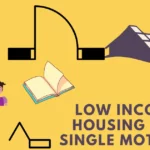The Earned Income Tax Credit (EITC) helps people and families who don’t earn a lot of money. It gives them extra money when they file their taxes, which can be really helpful. It can be tricky to figure out how it works, but don’t worry! We’re here to make it easier for you.

What is the EITC?
The EITC is essentially a work credit designed to either decrease the federal taxes you owe or potentially put money back in your pocket come tax time. The key requirement? You must earn income from a job.
Basic Qualifying Rules
Let’s start with the basics:
Income Limit: To be eligible for the EITC, your earnings for the tax year must be below $63,398.
Investment Income: Keep your investment income below $11,000 for the tax year.
Valid SSN: Make sure your Social Security Number is still good when it’s time to file your taxes.
U.S. Citizenship or Residency: To pay taxes in the U.S., you need to be either a U.S. citizen or someone who lives in the U.S. for the whole year.
Not File Form 2555: You cannot file Form 2555 for Foreign Earned Income.
Separated Spouse: If separated, certain conditions must be met when not filing jointly.
Also Check: Earned Income Credit on 1040
Special Qualifying Rules
In addition to the basic rules, certain groups have special considerations:
- Military members
- Clergy members
- Taxpayers and relatives with disabilities
SSN Requirements
The Social Security Number requirements are crucial:
- Your Social Security Number needs to be valid for working, and you must have gotten it before the deadline for filing your tax return.
- Social Security cards labeled “Valid for work with DHS authorization” are accepted.
- Other types like ITINs, ATINs, or SSNs marked “Not Valid for Employment” won’t qualify.
Filing Status
Your filing status plays a role too:
- Options include Married filing jointly, Head of household, Qualifying surviving spouse, Single, and Married filing separately.
Claiming Without a Qualifying Child
Yes, you can still claim the EITC without a qualifying child if you meet specific criteria. These include residency requirements and age restrictions.
Who Qualifies as a Dependent Child?
When claiming the EITC with children, they must meet certain criteria:
- Children can be biological, adopted, stepchildren, foster children, or grandchildren.
- Some people may have age limits, but if you’re a full-time student or have a permanent and total disability, you might not have to worry about those restrictions.
- To get certain benefits, the kid needs to have stayed with you in the U.S. for most of the year.
Can I Claim the EITC Without a Child?
Absolutely! If you don’t have a qualifying child but meet the income requirements, you may still be eligible for the EITC. Age and residency conditions apply here too.
Wrap Up
Navigating the EITC requirements may seem daunting, but armed with this knowledge, you’re better equipped to maximize your tax benefits. If you’re not sure about taxes, talk to a tax expert or check IRS guides for help. Make sure you get all the money you deserve—don’t miss out!
FAQs
What is the Earned Income Tax Credit (EITC)?
The EITC is like a special tax refund for people who don’t earn a lot of money. It’s meant to help them out financially.
Who qualifies for the EITC?
To get the EITC, you need to meet certain rules. These include earning less than a certain amount of money, having a real Social Security number, and living where you’re supposed to.
What is considered earned income for EITC purposes?
Earned income means the money you make from working, like your salary or wages, tips, and any money you earn from working for yourself.
Can I claim the EITC if I am self-employed?
Yes, If you work for yourself, you can get the EITC (Earned Income Tax Credit) if you qualify. To qualify, you need to have earned less than a certain amount of money.
What is the maximum EITC amount for the tax year 2023?
How much money you can get from the EITC changes based on whether you file taxes alone or with someone else, how much money you make, and how many kids you have that meet the requirements. For tax year 2023, the maximum credit ranges from $1,502 to $6,728.
Do I need to have children to qualify for the EITC?
No, you can still qualify for the EITC even if you do not have qualifying children, but you must meet certain additional requirements.
How do I claim the EITC on my tax return?
To get the EITC, you have to fill out a tax form and a special schedule. You might also have to show some extra papers to prove you qualify.
When will I receive my EITC refund?
If you picked direct deposit and everything’s okay with your tax return, you’ll likely get your EITC refund by March 1st. However, some taxpayers may receive their refunds earlier.
Can I claim the EITC if I am married filing separately?
Usually, if you’re married and file your taxes separately, you can’t get the EITC. But, there are some cases where you still might be able to if you meet certain conditions.
Where can I get more information about the EITC?
For more information about the EITC, including eligibility requirements and how to claim the credit, you can refer to IRS publications or consult with a tax professional. Additionally, the IRS website offers resources and tools to help taxpayers understand their eligibility for various tax credits.
I am the mind behind nammatech.com. I have an experience of more than 8 years in the digital marketing field. The idea behind starting this blog came when one of my friends find it difficult to fill out the application form. So, I came up with an idea to start a blog on this niche.

![Low-Income Housing for Disabled Adults, Seniors Near me [2024] housing for disabled adults](https://nammatech.com/wp-content/uploads/2023/03/Low-income-housing-for-disabled-with-no-waiting-list-near-me-USA1-150x150.webp)
![Low-Income Housing for Seniors near me in USA [2024] Low-income-housing-for-seniors](https://nammatech.com/wp-content/uploads/2023/03/Low-income-housing-for-seniors-150x150.webp)
![Low-income housing with no waiting list near me in [2024] Low-income housing with no waiting list near me](https://nammatech.com/wp-content/uploads/2023/03/Low-income-housing-with-no-waiting-list-near-me-150x150.webp)



![Homechoice Account Application 2024 [Open New Account] homechoice account application](https://nammatech.com/wp-content/uploads/2024/03/homechoice-account-application-150x150.webp)
